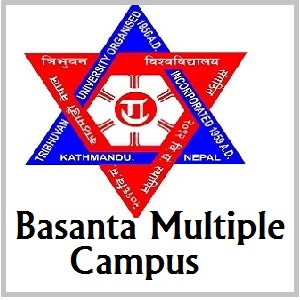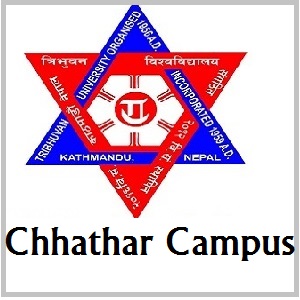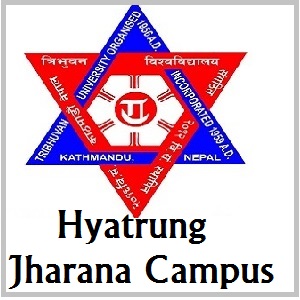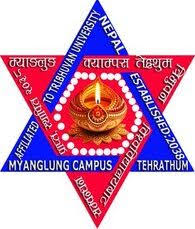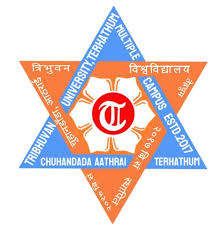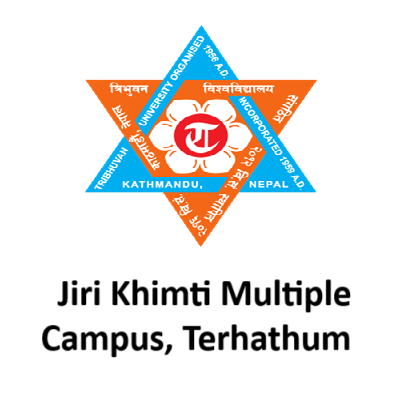Overview
Tehrathum Bahumukhi Campus, located in the northwestern part of the Tehrathum district, is within the Aathrai region—an area known for its rich historical, cultural, political, and educational identity. This campus was established on the 21st of Jestha, 2017 BS, at Chuhandanda through the collective efforts of local residents and education supporters. It offers bachelor's degree programs in Bachelor of Education (B.Ed.), Bachelor of Arts (BA), One Year Bachelor of Education (B.Ed.), and Master's Programs in MA in Population Studies.
Known initially as Birendra Inter College, it emerged from a shared belief that establishing a local center for higher education would foster community development and reduce the need to pursue education in Indian cities like Darjeeling and Banaras.
Prominent individuals, including Padma Prasad Upreti, Haricharan Sitaula, Hariprasad Thapaliya, Laxmi Prasad Upreti, Chandraman Kandangwa, Shivkumar Shrestha, and Laxmi Prasad Thapaliya, played active roles in founding the college. Led by Padma Prasad Upreti, the institution was formally inaugurated on Jestha 10, 2017 BS by Makarbahaadur Bantawa, then Bada Hakim of Dhankuta.
The first principal, Rajnarayan Pradhan—an M.A. graduate in English from Darjeeling—was appointed to lead the college. It received temporary approval in 2018 BS and permanent recognition from the Ministry of Education in 2022 BS. Initially, classes were conducted in two rooms borrowed from Shree Sharda High School.
To better organize the college, a management committee meeting held on Baisakh 4, 2025 BS, decided to purchase land for a dedicated campus building. A plot of 52-9-2 owned by Shree Prasad Singh Khawas (Bhujel) at Chuhandanda’s Uccha Taar was bought using NPR 14,752 raised through donations.
The campus committee drafted a plan costing NPR 140,000 to cover half the amount through community contributions and half through government support. Dronacharya Sitaula laid the building's foundation. With NPR 30,000 in government funding, community labor, and financial support, a two-story thatched-roof building with 16 rooms (150 ft long and 23 ft wide) was completed by Asar 2026 BS.
By Asar 2027 BS, the management shifted classes from the day session to the newly built structure.
Though established as Birendra Inter College, it merged with Dhankuta Campus in 2028 BS for various reasons. Later, in 2033, BS efforts were made to convert it into an agricultural campus, but geographical constraints made that unfeasible. Instead, a 10-month teacher training program began in 2035 BS, and in 2037 BS, the institution received approval to operate I.A. (Proficiency Certificate Level) in Humanities, transforming it into the Tehrathum Campus.
It received permission to conduct Bachelor' s-Level (B.A.) humanities courses from Jestha 19, 2046 BS. On Kartik 26, 2063 BS, it was redefined as the Tehrathum Bahumukhi Campus.
Starting with limited infrastructure and human resources, the campus aimed to provide accessible higher and professional education to students in the hilly districts of Koshi Province—Tehrathum, Panchthar, and Taplejung.
Today, the campus includes:
-
Three academic buildings
-
One seminar hall
-
Three administrative blocks
-
Two library buildings
-
Ten staff quarters
-
Two student hostels
-
Three guest houses
-
One student union building
Thanks to the support of the local community, educators, social workers, and dedicated students, the campus has produced many capable graduates who have contributed to national development.
As a constituent campus of Tribhuvan University, it offers:
-
Four-year Bachelor's in Humanities (B.A.)
-
Master’s in Population Studies
-
Four-year and one-year B.Ed. in Education
Currently, the campus has:
-
18 teaching faculty members
-
8 administrative staff
-
300 enrolled students
In Humanities, the compulsory and optional subjects include:
-
English
-
Nepali
-
Mathematics
-
Population Studies
-
Political Science
-
Economics
-
History
In Education, specializations include:
-
Four-year B.Ed.: English, Nepali, Mathematics, Population Education
-
One-year B.Ed.: English, Nepali, Population Education, Health and Physical Education
With continued support from the government, Tribhuvan University, and local well-wishers, the campus aims to expand its academic offerings, introduce more faculty and departments, and contribute more significantly to society and national progress.
To date, the campus has legally acquired 92 ropani 11 aana 3 paisa (92-11-3) of land in and around its current location, purchased in 2024 BS from Shree Prasad Singh Khawas and in 2040 BS from Tek Bahadur Khadka and Ratna Bahadur Dangi.
Vision, Mission, Goals, and Objectives
Vision:
Tehrathum Multiple Campus is about to leap into academic excellence.
Mission:
Tehrathum Multiple Campus attains academic excellence, focusing on teaching, learning, research, and administration.
Goal:
To improve the quality of the existing academic program, economic and physical infrastructure, institutional governance, and human resources in teaching, learning, and research.
Objectives:
• To digitize and network the administration and the classroom
• To establish an e-library and RDI center
• To add a marketable academic program
• To build student-friendly infrastructure
• To establish an integrated software system
• To upgrade the journals to an online journal
• To ensure institutional governance
• To establish a student support system and student welfare activities
• To develop skills and competent human resources
• To provide community support for our teaching program and dissemination
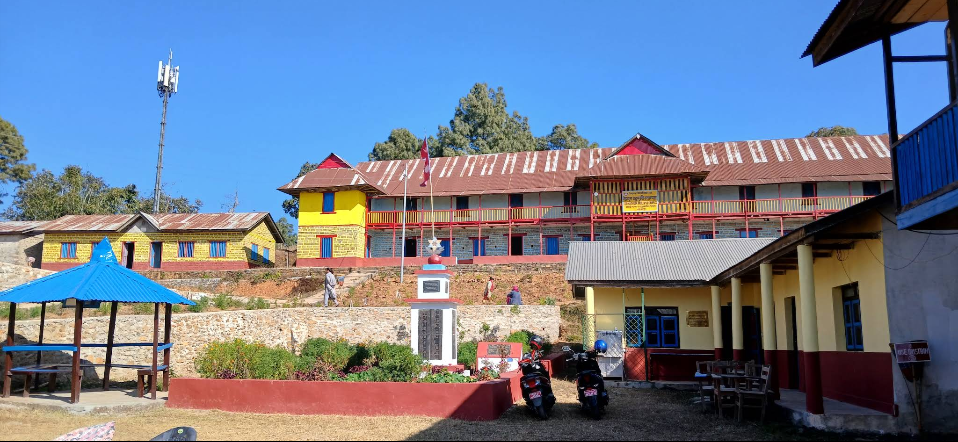
Strategic Plan
The campus’s strategic plan includes the development and expansion of physical and academic infrastructure, financial management, expansion and timely improvement of academic and educational programs, reform in the examination system, emphasis on research, use and access of information and communication technology, timely improvement and decentralization of scholarships provided by the campus/departments, expansion of relations at national and international levels, and ensuring the quality of higher education.
The policies and programs of Tehrathum Campus are presented as follows:
-
Emphasizing institutional good governance
-
Increasing the internal income sources of the campus
-
Publishing all campus activities in a standard manner through information technology
-
Proceeding with the process to manage additional full-time subject-wise manpower
-
Focusing on the Student Support System and preparing and implementing annual activity plans of each department and subject
-
Taking a Letter of Intent from the University Grants Commission and proceeding with the QAA process
-
Arranging entrance exams, admission, regular classes, and internal examinations within the stipulated time
-
Making the campus technology-friendly to improve teaching and administrative efficiency
-
Preparing and implementing an annual budget-based work plan based on the principle of transparency and cost-effectiveness
-
Preparing an annual progress report every year during the campus anniversary
-
Honoring teachers and staff based on performance, dedication, competence, and effectiveness
-
Activating the research committee
-
Seeking resources to upgrade teachers’ and staff quarters, hostels, buildings, and drinking water facilities
-
Constructing a seminar hall equipped with a modern sound system
-
Managing the examination hall
-
Initiating necessary actions to introduce the Faculty of Management (BBS program)
-
Continuing additional activities as per the agreement of equality-based grants
Strengths of the Campus
-
Teaching of the new and relevant subject “ICT in Education” under the Faculty of Education
-
In addition to the scholarships regularly provided by the university, scholarships and tuition waivers are distributed every year to talented, hardworking, underprivileged, and Dalit students from a scholarship fund of more than NPR 1.1 million established by various education supporters and endowment donors
-
Student-friendly, pleasant, and clean academic environment
-
Library with adequate reference materials
-
Arrangement of student health insurance
-
Provision of free sanitary pads for girl students
-
Availability of clean drinking water
-
Regularly conducted extracurricular activities
-
Adequate sports equipment and a playground
-
Facilities of internet and computer lab
-
Sufficient land available for physical infrastructure
-
On-campus residential facilities for teachers, staff, and students on campus-owned land
Opportunities for the Campus
-
As the Tehrathum Campus can take leadership of Nepal’s far eastern region, it can be developed as a center for training and workshops in addition to teaching and learning.
-
The possibility of conducting various research due to the presence of skilled and experienced professors
-
Possibility of providing the necessary skilled human resources for planning and implementation at the local level by coordinating with local governments
-
Students will be motivated towards learning due to the availability of sufficient scholarships.
-
The campus is located in a learning-friendly and clean environment
Development Works Completed
-
Maintenance of toilets
-
Maintenance of the playground
-
Management of clean drinking water
-
Placement of dustbins on campus premises for waste management
-
Arrangement of a motorcycle parking area for teachers and staff working at the campus
-
Construction of a concrete wall for the security of the campus playground
-
Initiation of the flower garden and landscaping within the campus premises
Scholarships
-
Free scholarships are provided to regular and meritorious students studying at the undergraduate and postgraduate levels.
-
As per the government’s determination, free scholarships are provided to 20% of the total enrolled students at the undergraduate level (regular)
-
The best-performing male and the best-performing female student from each faculty receive merit scholarships.
-
Arrangements have been made to receive health insurance services through branch-level recommendation.
Teaching Methodology
To adapt education to meet the needs of a changing context, the Faculty of Education under Tribhuvan University has included theoretical and practical teaching practice components as a compulsory part of the curriculum at the bachelor's and master's levels. In line with the university’s objective of making subjects skill-oriented, competency-based, and employment-focused, teaching practice has been developed as a major practical component in the Faculty of Education.
Through the implementation of this course, the goal is to produce human resources capable of applying theoretical knowledge in practical settings. Based on this aim, students enrolled in the fourth year of the four-year B.Ed. program, the one-year B.Ed., and the fourth semester of the master's level are taught practical skills considered essential for effective teaching after completing their theoretical studies.
Training and competency in teaching are essential for becoming strong and capable teachers. A teacher's responsibility involves delivering content in the classroom, developing and using instructional materials according to subject requirements, applying appropriate teaching methods and evaluation processes, transferring knowledge effectively, and planning academic activities.
In this context, the primary goal of teaching practice is to develop student-teachers into competent professionals. The program is designed as a structured mechanism to build professional knowledge, skills, and behavior in order to produce trained and qualified teachers and educational administrators.
At the Tehrathum Bahumukhi Campus, located in Chuhandanda, the Faculty of Education is currently offered at the bachelor's level only. The one-year B.Ed. program began in 2060/061 BS, and teaching practice was introduced as a subject for the first time in 2063 BS. Since 2066 BS, the three-year B.Ed. and now the four-year B.Ed. Programs have implemented the teaching practice component per the format prescribed by the Dean’s Office of the Faculty of Education, Tribhuvan University.
Objectives of Teaching Practice
By the end of the teaching practice, student-teachers are expected to be capable of performing the following tasks:
a) Prepare teaching plans based on the subject, lesson, and curriculum
b) Develop and demonstrate skills for selecting, creating, and using appropriate teaching materials as per the lesson plan
c) Choose and apply suitable teaching methods in line with the lesson plan
d) Design and use different assessment tools to achieve instructional objectives
e) Observe and analyze their own and their peers' teaching techniques
f) Manage classroom seating and setup in a suitable manner for teaching
g) Identify students’ learning difficulties and provide solutions
h) Properly utilize textbooks, reference books, and other resource materials for teaching
i) Recognize the role and responsibilities of a teacher during instructional activities
j) Study and analyze the curriculum and textbooks relevant to the subject and level
k) Design question papers, conduct exams, and analyze results
l) Practice writing co-curricular and comprehensive academic reports
m) Prepare different academic plans typically implemented in schools
Scholarships Provided from the Campus:
On the Campus, apart from the scholarships provided by T.U., many scholarships are provided to the competent, Dalit, and Janajati students. The following table shows the details about scholarships and their donors:
| S.N. | Scholarships name | Total fund (in Rs.) | Estd. year B.S. | Donor of Scholarships |
|---|---|---|---|---|
| 1 | Bishnu Maya Thapaliya Scholarship Fund | 50000 | 2044 /2079 | Bhanu Prasad Thapaliya Son Dr. Roshan Thapaliya |
| 2 | Meharman Scholarship Fund | 25000 | 2052 | Kul Bahadur Khadka |
| 3 | Laxmi-Tara Scholarship Fund | 100000 | 2063 | Late Laxmi Prasad Upreti, Late Tara Upreti |
| 4 | Swarna Mahotsav Scholarship Fund | 100000 | 2068 | All the Lecturers of TMC (23) |
| 5 | Golden Jubilee Scholarship Fund | 50000 | 2068 | All the Administrative staff of TMC (2068) |
| 6 | Ganga-Geha Scholarship Fund | 61000 | 2068 | Purusottam Mishra and Shastika Mishra |
| 7 | Bhakta Raj Samyak Scholarship Fund | 50000 | 2068 | Bhakta Raj Samyak |
| 8 | Ganga Bahadur Aacharya Memorial Fund | 50000 | 2068 | Gauri Prasad Aacharya and his ten brothers |
| 9 | Narendra Bharat Thapaliya Memorial Scholarship Fund | 50000 | 2068 | Narendra and Bharat Thapaliya |
| 10 | Puspalila Memorial Scholarship | 10,1000 | 2068 | Chhabilal Thapaliya and his sons |
| 11 | Ganga Maya Dangi Oli Memorial Scholarship | 200000 | 2076 | Yogya Prasad Oli |
| 12 | Bhanu Prasad Thapaliya Memorial Scholarship Fund | 50000 | 2079 | Bhanu Prasad Thapaliya son Dr. Roshan Thapaliya |
| 13 | Bhuwan Mahani Thapaliya Memorial Scholarship | 50000 | 2079 | Bhanu Prasad Thapaliya son Dr. Roshan Thapaliya |
| 14 | Lok Nath Thapaliya Memorial Scholarship Fund | 50000 | 2076 | Narendra and Bharat Thapaliya |
| 15 | Haricharan Memorial Scholarship | 50100 | - | Laxmi Devi and Mana Maya Sitaula |
| 16 | Bhola Nath Memorial Scholarship | 25000 | - | Dili Ram Sitaula |
| 17 | Krishna Pakuwa1 Fund | 7000 | 2068 | Krishna Pakuwa1 |
| 18 | Dharani Dhar Neupane Memorial Scholarship Fund | 150000 | 2079 | Son and daughter of Dharani Dhar Neupane |
| 19 | Sherpa Kaila Memorial Scholarship Fund | 50000 | 2071 | Laxmi, Tara Upreti |
| 20 | Sitadevi Memorial Scholarship Fund | 50000 | - | Ramchandra Mainaly |
Contact Terhathum Multiple Campus' administrative office for detailed information on the course, admissions, location, fees, scholarships, facilities, counseling, or eligibility


